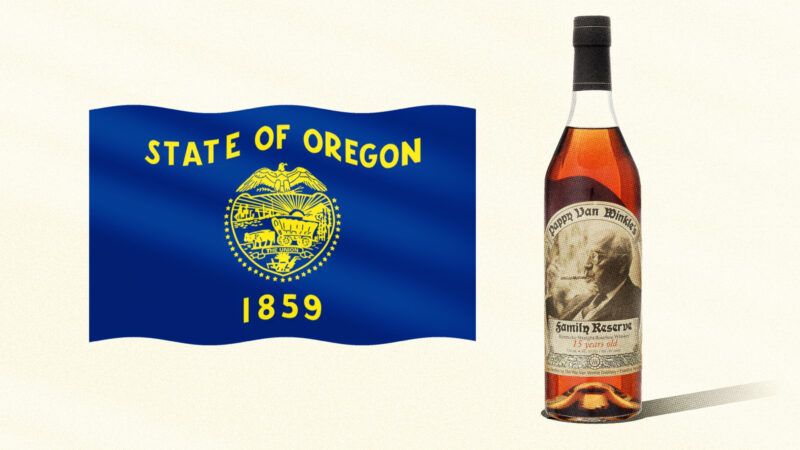Oregon's Whiskey Ring Shows Perils of State Liquor Control
Top government officials reportedly kept rare bourbons for themselves and other powerful insiders.

Over 150 years after the infamous "Whiskey Ring" scandal during the Ulysses S. Grant administration, Oregon is the latest state to have its own whiskey scandal. In today's world of ever-expanding whiskey obsession, it is increasingly clear state governments are violating public trust when it comes to managing alcohol supply.
According to reports from The Oregonian, top government officials at the Oregon Liquor and Cannabis Commission (OLCC) have been siphoning off elite and hard-to-obtain bourbons, such as various Pappy Van Winkle varieties, for their personal use. Even more explosively, OLCC officials reported also securing rare bourbons "hundreds of times" at the request of state lawmakers and other interests.
Oregon is one of 17 states known as a "control state" in which the government operates either the wholesaling and/or retailing of distilled spirits in the state. Nearly all the liquor the state receives goes to one warehouse, from which it is then distributed to various retailing outlets, known as "contract stores," that are operated by state-appointed liquor agents.
The way the OLCC siphoning process worked was alarmingly simple. The OLCC officials would email the warehouse supervisor, ask for a bottle to be set aside, then arrange to pick it up at the most convenient contract store. The warehouse supervisor reported that the practice predated her tenure at the OLCC, which means that it has been going on for at least eight years and likely for well over a decade.
This scandal is notably reminiscent of the recent Virginia whiskey scandal, in which a former employee of the Virginia Alcoholic Beverage Control Authority was caught selling insider information on which state-run liquor stores were expected to receive new caches of rare whiskeys.
At this point, it is evident that control state models are particularly ill-suited to handling the recent "bourbon bubble." Given that bourbon is enjoying a near-unprecedented popularity boom—combined with the fact that one cannot, by definition, simply ramp up production of 10- and 15-year whiskeys overnight—bourbon prices have skyrocketed.
In a control state, however, prices cannot float effectively to meet market demand. Rather, these states impose uniform government-mandated markups that lead to situations where a bottle of bourbon that might be worth $2,000 on the secondary (illegal) market is selling for $100–200 dollars in a state-run store. Inevitably, the rush to obtain these bottles is enormous and creates ideal conditions for insider jobs and abuses of power.
In contrast, if a private liquor store owner in a noncontrol state decides to hold back numerous bottles of rare whiskey for himself, he only hurts his own bottom line—and potentially turns off customers who would otherwise frequent his store. The customers themselves, in turn, can vote with their feet and instead start buying their booze from the competitor down the street.
In Oregon, there is no alternative—just insiders who get special access to rare whiskeys, and outsiders in the public at large who will rarely, if ever, be able to get their hands on such bottles. Oregonians have attempted to privatize their state liquor system on several occasions, including most recently this past year when a voter initiative was aborted before making it onto the ballot.
As in most control states, some of the fiercest opponents of privatization in Oregon are government unions like the American Federation of State, County, and Municipal Employees, which not only represent OLCC workers but also local government workers who benefit from the massive profits the control system kicks off for local municipalities.
It is not entirely the government's fault that a bourbon bubble exists. But it is incumbent upon governments to create clear and fair market conditions that do not constantly turn a market bubble into a scandal. The control state system continues to fail that test badly.

Show Comments (30)